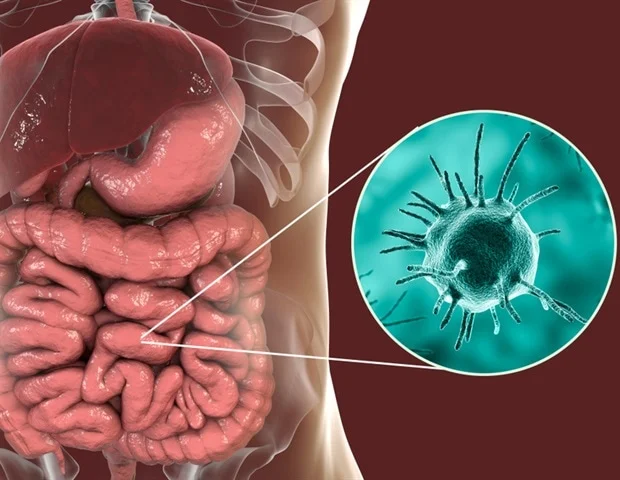Erectile Dysfunction (ED) is often thought of as a condition that only affects older men. However, it can and does occur in men as young as their 30s—and sometimes even younger. While occasional difficulty in maintaining an erection is common, persistent issues may signal a deeper underlying concern.
Understanding Erectile Dysfunction in Younger Men
Erectile Dysfunction is defined as the inability to get or maintain an erection firm enough for satisfactory sexual performance. While it becomes more common with age, the rise in cases among younger men—particularly in their early 30s—has become increasingly noticeable.
This doesn’t always mean something is seriously wrong, but frequent or ongoing problems shouldn’t be ignored.
Physical Causes of ED in Your 30s
1. Cardiovascular Health
Your 30s are when early signs of cardiovascular disease can emerge. Issues like high blood pressure, atherosclerosis (narrowing of blood vessels), and elevated cholesterol levels can restrict blood flow to the penis, causing erection difficulties.
2. Diabetes
Type 2 diabetes is becoming more common in younger adults due to sedentary lifestyles and poor eating habits. High blood sugar levels can damage nerves and blood vessels involved in the erection process.
3. Obesity
Carrying extra weight, especially around the abdomen, is linked to lower testosterone levels, poor circulation, and even insulin resistance—all of which can contribute to ED.
4. Low Testosterone
Although low testosterone is more common in older men, it can also affect younger men. It may manifest as reduced libido, difficulty with erections, fatigue, and mood swings.
Psychological Factors Behind ED in the 30s
Not all ED is physical. Mental and emotional health are powerful contributors, particularly in younger men. The mind plays a huge role in sexual arousal and function.
1. Performance Anxiety
Men in their 30s may feel pressured to satisfy a partner or fear failure, especially if they’ve had previous difficulties. This mental pressure can directly interfere with erection quality.
2. Depression and Stress
The stress of balancing work, relationships, and responsibilities can lead to emotional burnout. Depression also often results in a decreased libido and performance issues.
3. Relationship Problems
Communication issues, lack of intimacy, or trust concerns with a partner can create a mental block that affects arousal and response.
Lifestyle Factors You Might Be Overlooking
Daily habits play a significant role in your sexual health. Poor lifestyle choices can quietly contribute to ED without being obvious.
1. Smoking
Nicotine constricts blood vessels and reduces nitric oxide production—an essential chemical for erections.
2. Excessive Alcohol
While a drink or two may help ease anxiety, overconsumption of alcohol depresses the nervous system and impairs blood flow.
3. Drug Use
Recreational drugs such as cocaine, marijuana, and opioids may interfere with brain signals and hormone levels needed for erections.
4. Lack of Sleep
Poor sleep patterns disrupt hormone production and increase stress, both of which can lead to ED over time.
Available Treatment Options for ED in Your 30s
The good news is that Erectile Dysfunction is very treatable at any age. A combination of medical and lifestyle interventions can bring significant improvement.
1. Prescription Medications
Medications like PDE5 inhibitors are among the most popular and effective options. Fildena Professional, for example, is a fast-acting ED treatment designed for improved performance and lasting results.
Another convenient option for younger men who struggle with pills is Cenforce Oral jelly—a liquid-based sildenafil formulation that works rapidly and is easy to consume.
2. Daily Use Treatments
For those seeking more consistent results, Vidalista CT 20, which contains tadalafil, is known for its long-lasting effects (up to 36 hours) and is often preferred for its flexibility in timing.
3. Therapy and Counseling
If the root cause of ED is psychological, counseling or sex therapy can be incredibly helpful. Working with a therapist can address stress, anxiety, or intimacy issues that are affecting performance.
How to Prevent Erectile Dysfunction in Your 30s
Prevention is often easier than treatment. Here are key habits that help protect your sexual health:
Maintain a balanced diet and healthy weight
Exercise regularly (cardio and strength training)
Avoid smoking and limit alcohol consumption
Get regular sleep (7–8 hours nightly)
Reduce stress through meditation, therapy, or hobbies
Get annual check-ups to monitor blood pressure, sugar, and hormone levels
Final Thoughts: Don’t Ignore the Signs
Erectile Dysfunction in your 30s can be frustrating, even embarrassing—but it doesn’t have to be permanent. Understanding the root causes—whether physical, mental, or lifestyle-based—can help you take the right steps toward recovery.
Modern treatment options like Fildena Professional or Cenforce Oral jelly can offer immediate support, while lifestyle changes and therapy can deliver lasting results. Reliable online sources like Genericcures.com make accessing these treatments both simple and secure.
Always consult a medical professional before starting any treatment, and remember: early attention is the key to long-term sexual health.
Read more – Causes of erectile dysfunction in 30s















Leave a comment